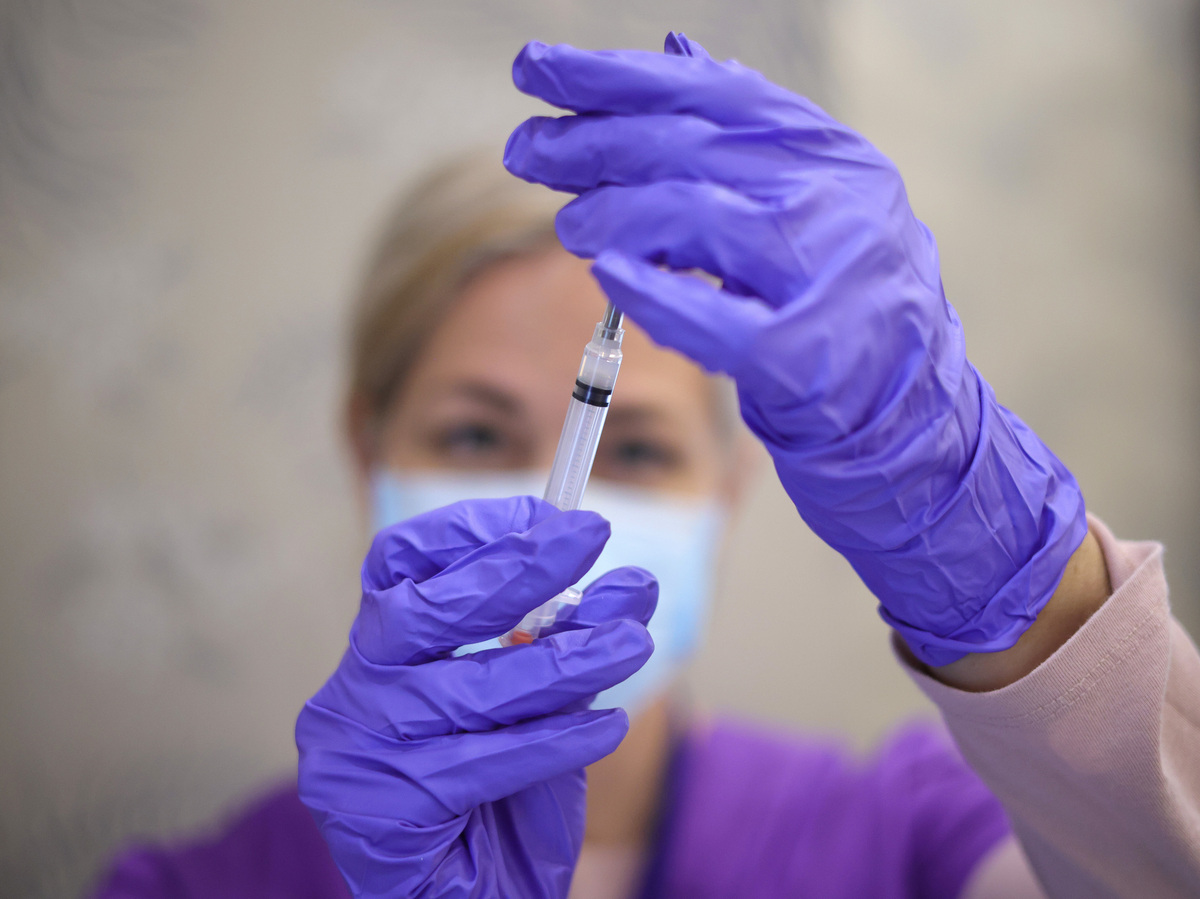Experts recommend that FDA should authorize Moderna COVID vaccine booster

Enlarge this image
A nurse draws a vaccine dose from a vial of Moderna’s COVID vaccine at the Cameron Grove Community Center in Bowie, Md., in March.
Win McNamee/Getty Images
hide caption
toggle caption
Win McNamee/Getty Images
A nurse draws a vaccine dose from a vial of Moderna’s COVID vaccine at the Cameron Grove Community Center in Bowie, Md., in March.
Win McNamee/Getty Images
A panel of advisers to the Food and Drug Administration on Thursday unanimously recommended that the agency authorize a booster dose of the Moderna COVID vaccine at least six months after completion of the initial two-dose regimen.
The recommendation applies to people 65 years and older, those 18 to 64 who are high risk of severe COVID and those people in the same age group whose work or institutional exposure puts them at high COVID risk.
The recommendation mirrors the authorization FDA gave to Pfizer-BioNTech in September.
The 19-0 vote came after presentations by representatives from the FDA and Moderna and committee discussion. The FDA typically follows the advice of its advisory committees, though it isn’t required to.
Moderna’s COVID-19 vaccine booster is half the dose of the initial shots used in its two-shot vaccination — 50 micrograms of mRNA versus 100 micrograms.
To set the stage, Peter Marks, director of the FDA’s Center for Biologics Evaluation and Research, made introductory remarks as the meeting got underway Thursday morning. «Vaccines still provide strong protection against serious outcomes,» he said. «Vaccine effectiveness against mild and moderate disease appears to wane over time. And mild to moderate disease can lead to blood clots and long COVID.»
The panel heard from researchers from Israel who gave an update on the experience with the Pfizer-BioNTech booster, which uses the same kind of mRNA technology as Moderna’s vaccine.
«The administration of the booster dose helped Israel dampen infections and severe cases in the fourth wave,» said Dr. Sharon Alroy-Preis, director of public health services at the Israel Ministry of Health. An analysis of side effects, including heart inflammation, was reassuring, she said, especially for the most worrisome problems. «I’m very confident about the serious events.»
Several of the committee members said the Israeli data shed important light on the role of boosters and were persuasive.
Some committee members said consistency with the previous action on the Pfizer-BioNTech booster was important, too.
«I support this [emergency use authorization] because we’ve already approved it for Pfizer, and I don’t see how we can possibly not approve it for Moderna and not have most U.S. folks completely confused.» said Dr. Stanley Perlman of the University of Iowa. «I think it’s a pragmatic issue.»
Just before the committee voted, Dr. Eric Rubin, editor in chief of the New England Journal of Medicine, acknowledged that there was incomplete information and some unanswered questions about the Moderna booster. «The data are not perfect,» he said, «but these are extraordinary times, and we have to work with imperfect data.»













Комментарии 0